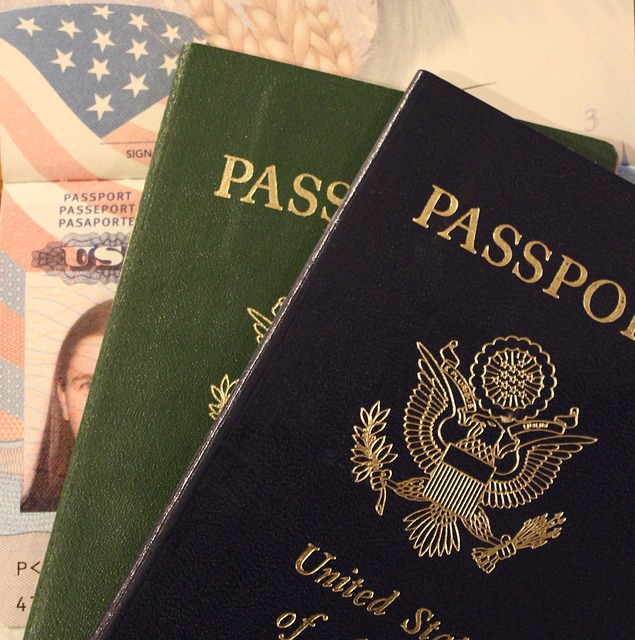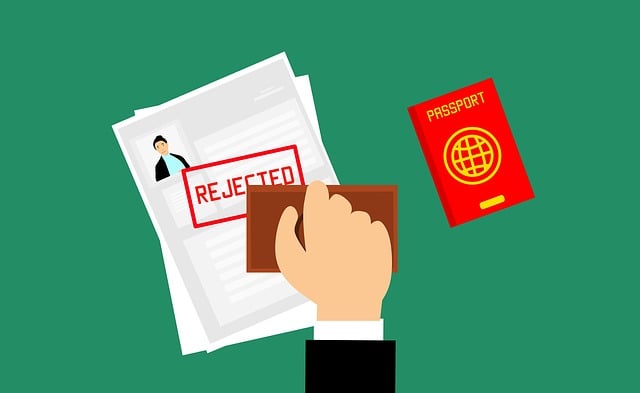Rapid Translate Team
When applying to the United States Citizenship and Immigration Services (USCIS), submitting supporting documents is crucial. A paramount part of this is submitting civil documents like birth certificates. However, adhering to all specified USCIS birth certificate requirements is the only way to ensure approval.
Immigration applications to the U.S. will surely take a lot of paperwork, from forms to documentation.
However, the immigration agency will definitely demand the applicant’s birth record. This is why it is essential to know about every requirement ahead of time. Read this blog post to get insights on the USCIS stipulations.

Table of Contents
Why You Need a Birth Certificate for USCIS
The USCIS requires applicants to submit supporting documents for green card applications. One major supporting document is a foreign birth certificate or suitable secondary evidence of birth. The applicant must submit a certificate of birth alongside other forms.
Similarly, family members applying for a marriage-based or family-based green card must provide a copy of each person’s own. Submitting this certificate proves the applicant’s identity, country of origin, and existence of lineage.
The immigration agency will not process the green card application without submitting the required civil documents.
However, submitting your birth certificate doesn’t end at that. You must make additional efforts to ensure it meets USCIS standards.
USCIS Birth Certificate Requirements for Immigration Application
The appropriate local government agency must issue an acceptable birth certificate for immigration application.
However, this government agency must have authority over the place of birth to issue a certificate. In addition, the certificate’s contents must be in full form to explain things in detail.
It must be a copy of a certified or original birth certificate on the appropriate letterhead. The applicant’s family must have also registered the birth with the appropriate agency within one year of the birth date. Otherwise, the USCIS may consider the certificate registration “late.”
Apart from this, the certificate must contain detailed information about the applicant and their parents. This information includes:
- The applicant’s full name at birth.
- The applicant’s date of birth.
- The place of birth.
- Full name of both parents.
- The certificate’s issuance date.
- The date of birth registration.
- The issuing agency’s official seal.
A birth certificate will exclude information useful only to the applicant’s country of origin or issuing government agency. However, most certificates will include all the above information. Thus, confirming the contents of an issued certificate before an immigration application is paramount.
Most importantly, an applicant must provide an English translation of a birth certificate written in a foreign language. The U.S. is English-speaking, and immigration documents should be readable and understandable. Failure to provide translations may lead to misinterpretation that may cause complications or denial.
However, providing translated copies of the document requires abiding by specific translation requirements. We’ll highlight these requirements later in this piece.

Alternatives for the U.S. Immigration Birth Certificate Requirements
Sometimes, a birth certificate may not meet the USCIS requirement, which could hinder the immigration process. In this case, the applicant must submit a notarized personal affidavit. An affidavit is a written statement explaining the details of the applicant’s birth.
It also explains why they could not get a certified copy of the certificate. After including the necessary details in the affidavit, a notary or an official third party will verify its content. The information in the affidavit must be specific and understandable.
The applicant must also submit one secondary evidence alongside the affidavit. The evidence can be any of the following documents:
- A baptismal certificate.
- A birth certificate issued by a military or local hospital.
- A school record.
- An adoption decree (for adopted applicants).
- A certificate of birth from the doctor who delivered the applicant.
- A document from the appropriate government agency from the country of origin explaining why the birth record doesn’t exist. The agency must also clarify if a similar record is available.
The application process should go smoothly if the applicant can provide any of these documents alongside the affidavit.
Unfortunately, there may be situations where no document proves the person’s birth. Luckily, the USCIS has made arrangements for this.
Solution for Unavailable Record of Birth
If the original certificate and alternative documents aren’t available, the applicant must submit a different notarized personal affidavit. This affidavit will come from a living parent or older close relative. The person’s statement would include:
- The full name, date, address, and birthplace of the person writing the affidavit.
- Their relationship with the applicant.
- How well they know the applicant.
- The applicant’s date and place of birth.
- The full names of both parents.
- Additional information on the circumstances and facts of the applicant’s birth.
To ensure acceptance, the affidavit’s author must be someone whose age allows them to remember the birth. This means they must be much older than the applicant. It is best if it is a parent, uncle, aunt, or significantly older sibling.
When Is a Birth Certificate Affidavit Needed?
A birth certificate affidavit is crucial when the original certificate is unavailable, incomplete, or registered late. The original birth certificate may be unavailable if the responsible government agency doesn’t have a record of the birth.
In this case, the applicant must obtain a non-availability certificate from the agency confirming its non-existence.
In addition to a non-availability certificate, the applicant must provide two birth certificate affidavits attesting to the birth. On the other hand, the original document may be available but inadequate for immigration application. This happens when it doesn’t contain the required information.
It could be inadequate if the birth registration is late (more than one year after birth). In this case, the applicant must provide an inadequate birth certificate and two affidavits. It is essential to meet the requirements for a USCIS birth certificate, a birth certificate USCIS accepts will undergo strict examination.
The USCIS Birth Certificate Translation Requirements
Birth certificate translation is mandatory for the USCIS if the original document isn’t in English. The USCIS operates with English as its official language, so non-English documents must have English translations.
Translations ensure that USCIS officers can accurately read and verify the information provided. Failure to provide a translation can result in the delay or rejection of the application. Typically, the agency will return the original copy with a Request For Evidence (RFE).
One primary requirement of USCIS-translated documents is accuracy. The translated copy should be a complete and accurate version of the original document. Apart from these, there are other secondary requirements. They include:
- The translation must contain every detail, including signatures, stamps, and notations.
- The translated version should replicate the original document’s format as closely as possible.
- Names, official titles, and dates must retain their original meaning and context in the translated copy.
- The date format is paramount and must align with the U.S. standards (month/date/year).
In addition to these, the document’s translation certification is also required. The applicant must submit a translated certified birth certificate to the USCIS. A certified translation contains a signed statement declaring its completeness and accuracy.
This USCIS certification assures the official that the submitted translation is accurate and meets all the criteria. It also indicates the translator’s competence to provide a precise document translation.

Who Can Certify a USCIS Birth Certificate Translation?
Anyone except the immigration applicant can certify a document translation in the U.S. The translator doesn’t need a certification to provide certified translations.
However, it must be someone fluent in both languages. They must also be willing to sign a certification statement attesting to the accuracy of the translation.
As long as the translator has fully reviewed the translation for completeness and accuracy, there shouldn’t be any complications. Despite this, it is best to use the services of a professional translator or translation company. These translators have an adequate understanding of the USCIS requirements.
They also have experience translating various immigration civil documents, such as birth certificates, military records, marriage certificates, etc. This would ensure the immigration agency accepts and approves the translations, helping avoid RFE and other complications.
Additionally, most government agencies recognize translations from professional document translation services. The service provider’s reputation assures the immigration officer of the translation’s accuracy.
Get Certified Birth Certificate Translation at Rapid Translate
Now that you know the advantages of hiring a professional translator, the next step is to find one. However, finding a credible and outstanding one may be challenging.
But don’t worry; we have you covered. Rapid Translate can provide accurate, high-quality certified translations for your birth certificate.
Our team of professional translators has adequate skill and experience to meet the USCIS birth certificate requirements. We also provide translations for other documents needed to support your immigration application. Our services are affordable, fast, and reliable.
We take your global communication to the next level and assure 100% acceptance at the USCIS. If you are looking for the best place to certify or notarize your documents, Rapid Translate has got you covered. Order now to experience the power of quality document translations!





